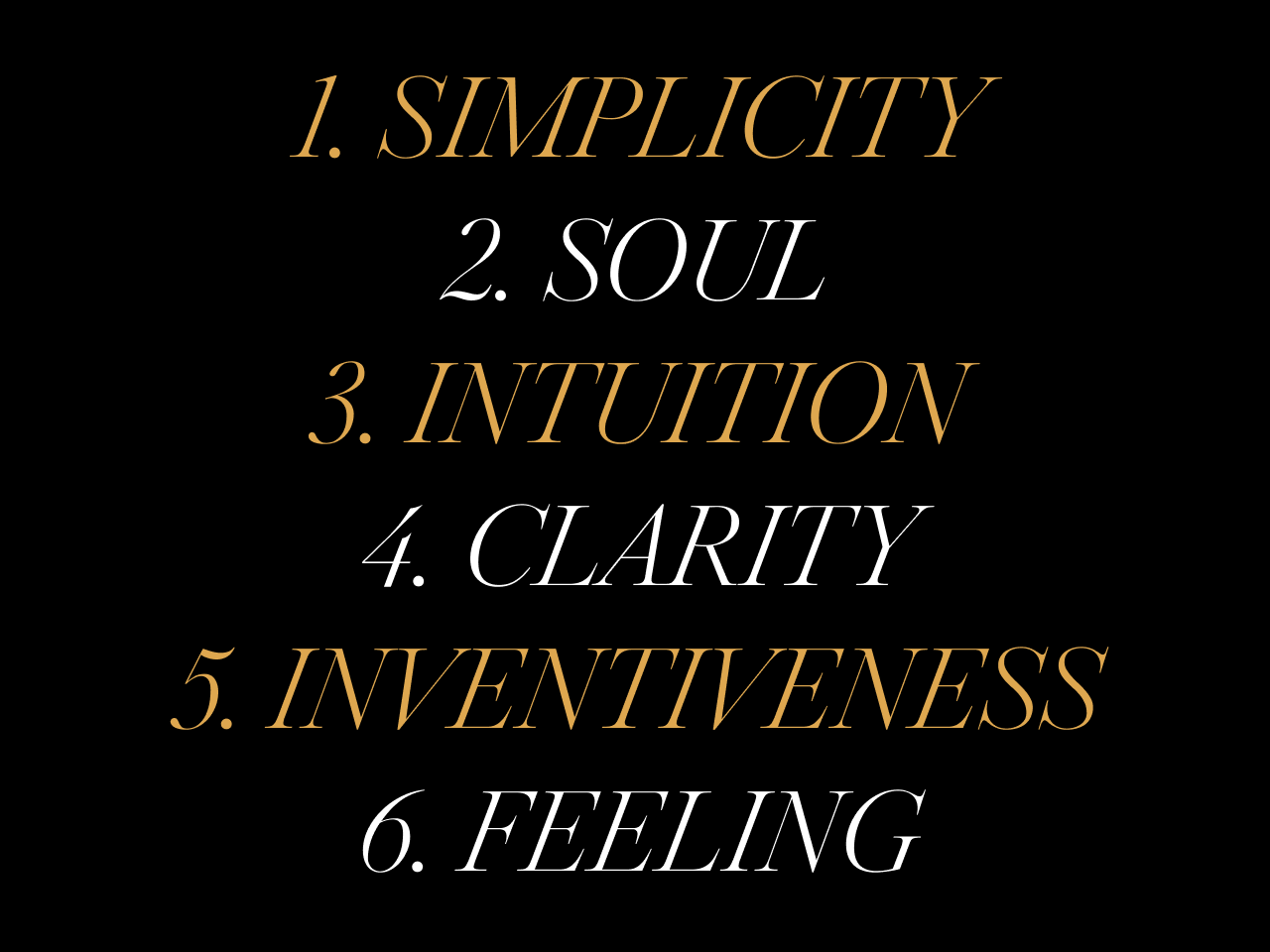- The best product insights are the simplest. I always go back to Occam's Razor: “The simplest solution is most likely the right one.” The same thinking should go into building products. Overthought, over-designed, and over-engineered features lead to nowhere. People need to understand your product, be able to use it with ease, and resonate with it. That's it. Nail the core value and do it better than everyone (or be the only one to do it) and you have something at your fingertips. If you don’t, nothing else matters.
- Products should have soul. It should radiate beauty, be opinionated about what it is and what it isn't, seek to make a genuine authentic connection tied to its values and mission, and give off respect (or care for human experience) above all. Ask: would you want to use this? Would you love to use this? Would you want the product to do this to you? Would you want others to use this? Would you be proud of making it because you believe it needs to exist in the world?
- Paradigm-shifting products come from discovery via curiosity and intuition. Real paradigm-shifting products that alter or create new behaviors and sometimes new markets and business models come from curiosity and a strong point-of-view usually as a result of imagination and experience (or dissatisfaction from the status quo) combined with audacity. I also have a strong belief that the best insights are a result from being a student of history; in essence, understanding the past in order to create the future. The best description I could find for this is Applied Discovery as coined by David Cole. The best part is, they always seem obvious in hindsight: “Why wasn’t it like this before?”
- The challenge of every product is to make it more robust and yet maintain its clarity. It's easy to add a new feature. The question is: can you expand the ability of a product while making it easier to use? While maintaining its elegance? While not losing its soul? Same goes if/when you have to switch a product’s vision moving forward due to where the world is going. Can you maintain clarity as you navigate a new reality? This is extremely delicate and requires a ruthless approach, discipline, balance, patience, and commitment from everyone involved in building the product. And you do this by always keeping in mind the essence of what the product's core offering is.
- One can be a good product builder by moving the metrics but they can never be a great one without risk-taking and inventiveness. The very best dare to push the boundaries, and as a result, push the limits and capabilities of their organization, their people, their industry, even society as a whole. And this kind of innovation isn't just created via the product, but through the willingness to explore new business models, new processes, new ways of thinking. Intuition is one thing, but having the courage to do things others aren't is a completely separate skill, possibly even a personality trait driven by a natural and internal desire for creativity and excellence.
- The feeling should be the starting point and the ending point. This is often the most overlooked part in building products, yet arguably has the most lasting impact1. Product builders focus on "job-to-be-done" for people to use a product and the "hook" model in order to get them to keep using it. These are valuable frameworks in understanding the psychology behind products. But there is one thing that commands loyalty beyond simple rationale or compulsion, and that is feeling. What you want someone to feel should be the starting point of the product, and the outcome of what you ship should always seek to generate the feeling you are aiming for.
⁘
All of the above must be true in order to build a product that is loved, admired, even revered.
It’s hard to put a dollar amount or train this, and that is what makes building products an art. The things we build are more than just commercial products but an expression of what we believe should exist in the world and how it ought to be. This is why it takes craft, conviction, and courage.
Because products are never “finished,” this should give one both the hunger and humility to keep getting better. We are in the business of inventing things for people and that requires a great deal of responsibility. That we get to Build Tomorrow Today™ is precisely what makes it fun.
If you align with these beliefs, I run a product development consultancy, and am open to potential full-time opportunities where there’s a natural fit.
For inquiries, reach out to jomi.cubol@gmail.com.

